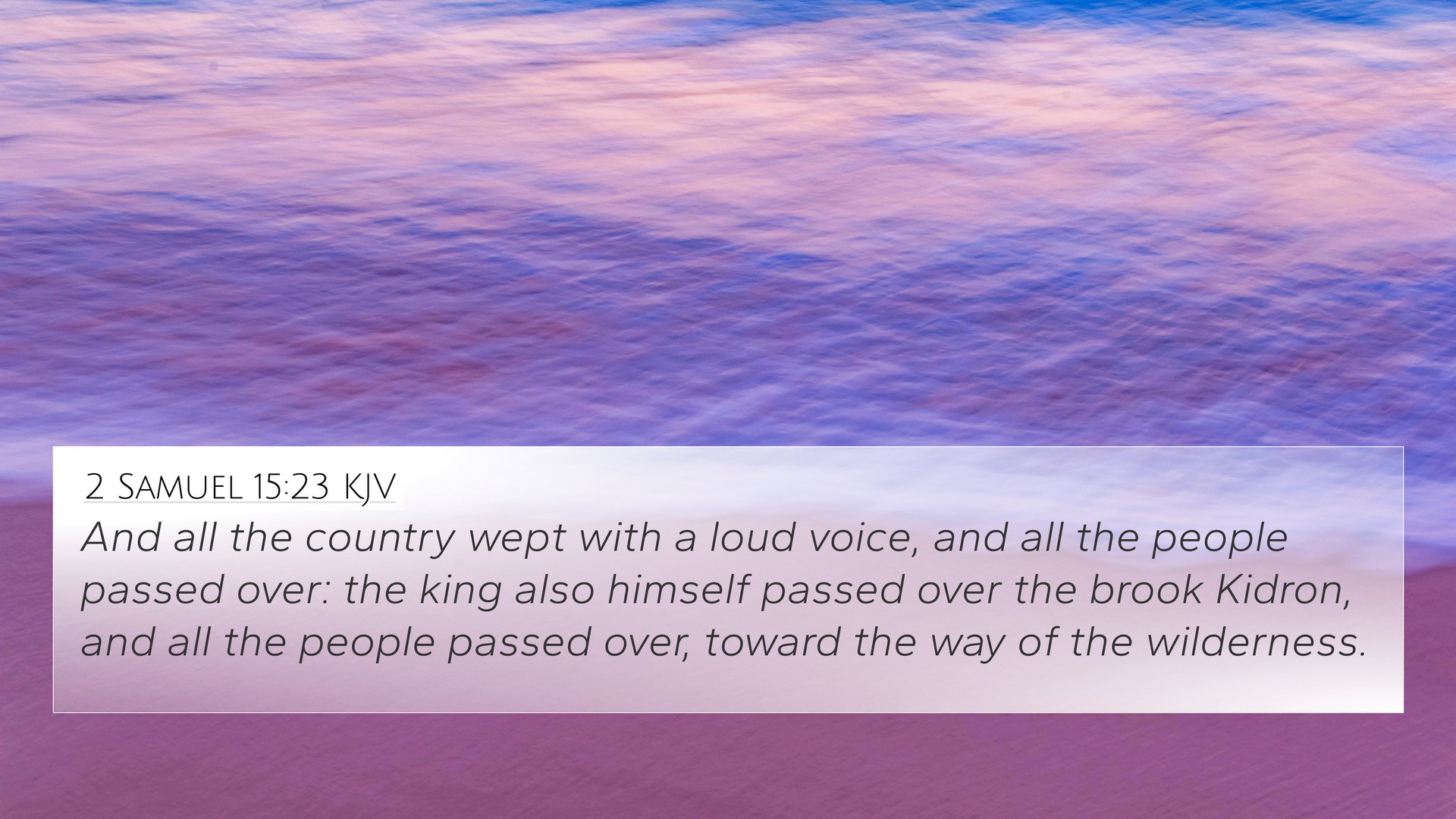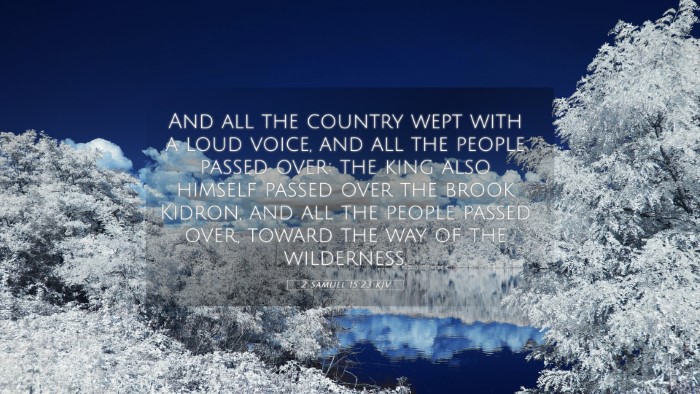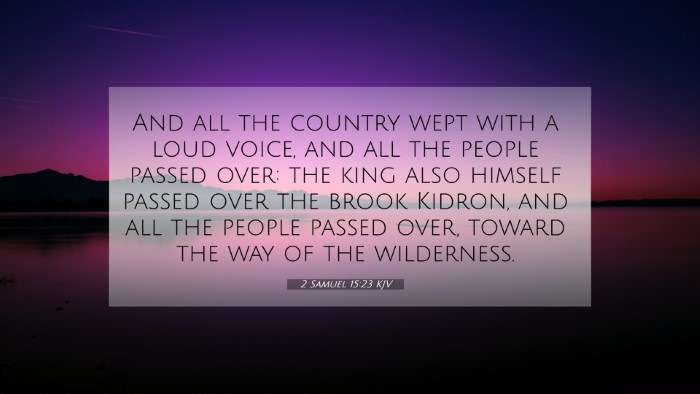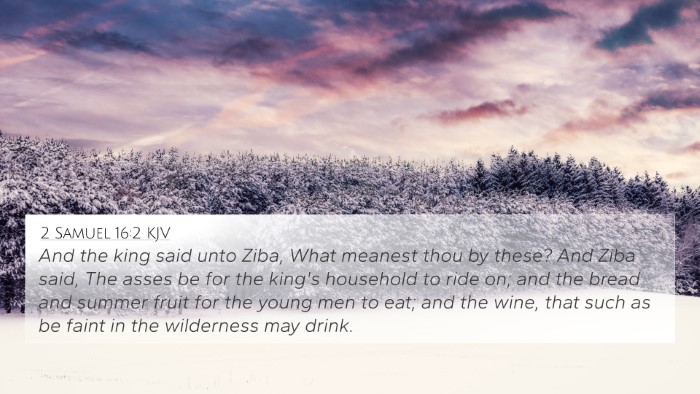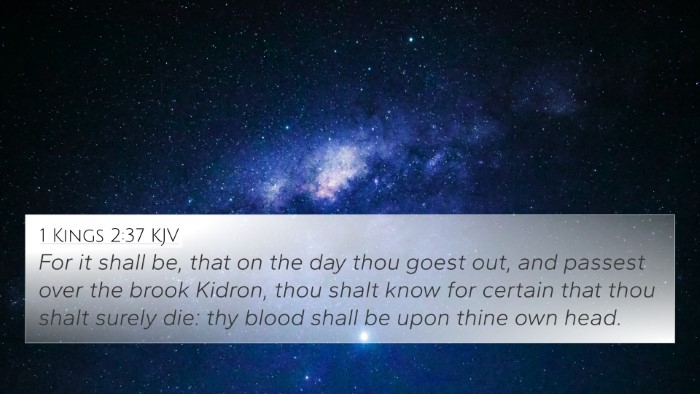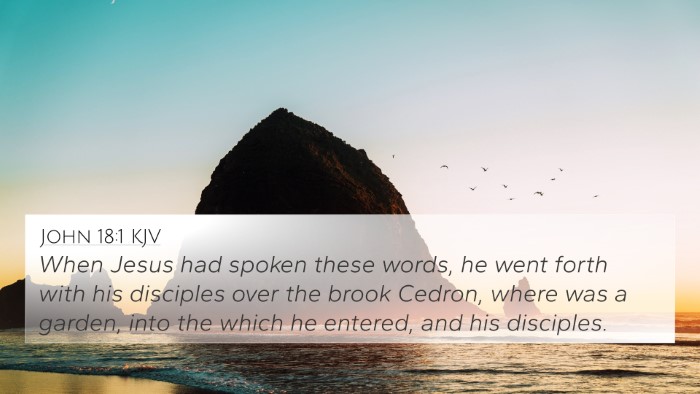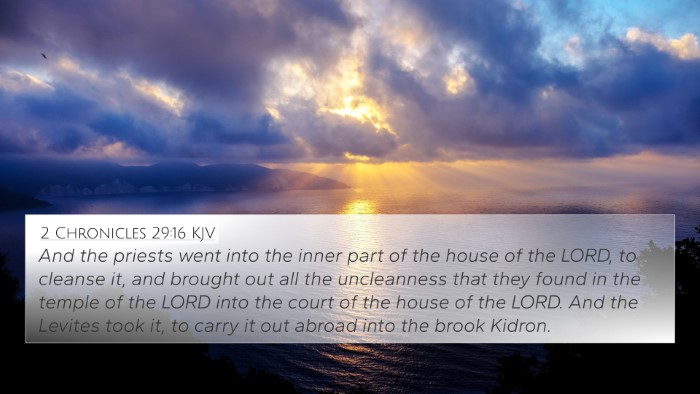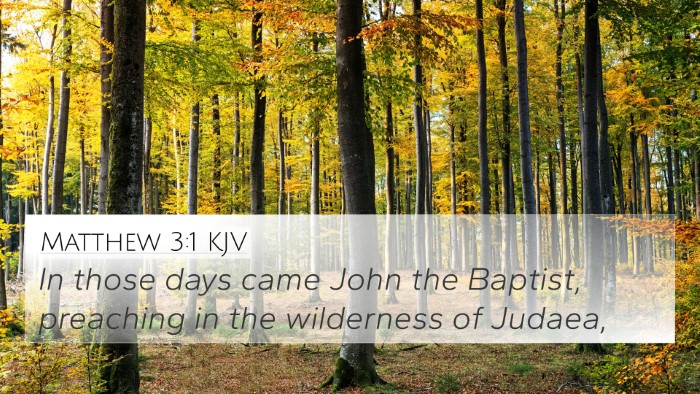Understanding 2 Samuel 15:23
Bible Verse: “And all the country wept with a loud voice, and all the people passed over: the king also himself passed over the brook Kidron, and all the people passed over, toward the way of the wilderness.” - 2 Samuel 15:23
Summary of 2 Samuel 15:23
This verse vividly describes a poignant moment during King David's flight from Jerusalem due to the rebellion led by his son, Absalom. The emotional atmosphere is highlighted through the collective mourning of the people and the significance of the brook Kidron as a geographical marker during this time of distress.
Commentary Insights
-
Matthew Henry's Commentary:
Henry illuminates the despair of the people indicating their loyalty to David during his hardships. The weeping signifies their sorrow not only for David’s plight but also for the state of the nation under Absalom’s uprising. The mention of the brook Kidron serves as a historic and symbolic boundary, representing a separation from the former glory of Jerusalem.
-
Albert Barnes' Notes:
Barnes elaborates on the emotional state of the populace as they leave their city, highlighting the weight of David's kingship and the burden of betrayal by his own son. The act of crossing the Kidron is seen as both a physical journey and a figurative one, illustrating the challenges faced by David and his loyal followers. The wilderness represents a place of exile and testing.
-
Adam Clarke's Commentary:
Clarke examines the communal lamentation and the stark contrast between David's reign and the chaos introduced by Absalom. He comments on the significance of the wilderness as a place of refuge and retreat, where God would later rejuvenate and prepare David for restoration.
Key Themes and Reflections
This passage addresses themes of loyalty, loss, and leadership during trials. It shows the emotional toll of betrayal and the resolve to endure through uncertain futures. These themes resonate with various narratives throughout the Bible, offering inter-Biblical dialogue rich for exploration.
Cross-References for 2 Samuel 15:23
- Psalm 55:12-14: Expresses betrayal and sorrow from a friend, mirroring David's pain.
- 2 Samuel 16:14: Continues the narrative of David's exile, showcasing the ongoing challenges he faces.
- 1 Kings 2:10: References David's death and the transition of power, highlighting his legacy.
- Matthew 26:30-31: Jesus quotes from Zechariah about striking the shepherd, indicating the pain of abandonment faced by leaders.
- Hebrews 11:38: Discusses those who wandered in deserts, aligning with David's time in the wilderness.
- Job 30:30-31: Reflects desolation and grief similar to what David feels during his exile.
- Luke 22:39: Jesus' journey to the Mount of Olives reflects emotional turmoil akin to that of David's departure.
Thematic Connections
2 Samuel 15:23 serves as a profound moment of intersection within the narrative of Israel’s monarchy, reflecting deeper implications regarding leadership, trust, and the trials of faith. These thematic elements resonate across various books, offering rich opportunities for comparative Bible verse analysis.
Using Cross-References Effectively
For those looking to delve deeper into the connections between Bible verses, consider the following tools and methods:
- Bible Concordance: A tool that lists words and phrases along with their scriptural locations.
- Cross-Reference Bible Study: Engaging with a Bible version that includes cross-references can enrich your understanding.
- Bible Reference Resources: Utilize study Bibles that provide commentary and cross-references for various verses.
- Bible Chain References: Develop a chain of scriptures that connect thoughts or themes effectively.
Conclusion
2 Samuel 15:23 illustrates a moment of great sorrow and heartache in King David’s life. By understanding this verse and its context, along with its connections to other scripture, readers can gain deeper insights into themes of loyalty, hardship, and the enduring spirit of faith amidst trials. Exploring these passages through systematic cross-referencing provides a broader understanding of the Biblical narrative as a whole.
